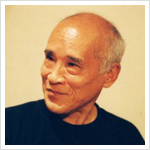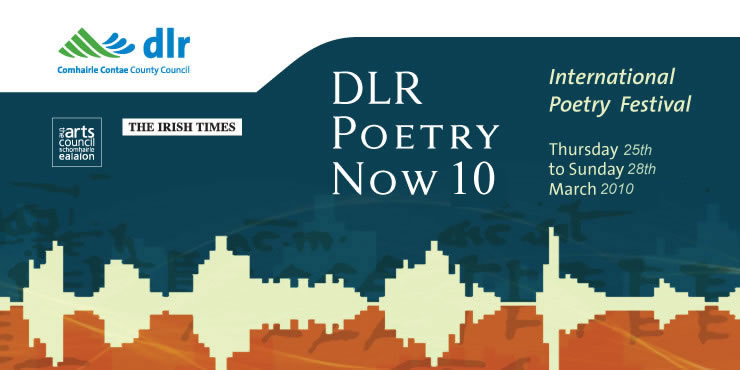
Imagine a hand had reached down from the sky and lifted up Paris, Rome and Madrid, shuffled them and laid them out on a grid by the River Plate delta, and you have some idea of Buenos Aires. I’m here again for the first time in almost a decade and second time around the impressions are just as overwhelming. Nothing quite prepares you for the intensity of the city: the endless roar of the traffic, the teeming pavements, the sense that all fourteen million inhabitants of the Greater Buenos Aires have just poured onto the streets. The grid layout actually increases the din; cars, buses and taxis honk and weave down five lane streets in one way systems. Haussmannesque avenidas stretch for miles crossed by a seemingly endless series of parallel streets.
You move around it as across a chessboard, with two crossing streets as your map reference. I need to get to a bookshop on the other side of the city, where a translation of a selection of my poems is being launched. ‘Scalabrini Ortiz and Santa Fe,’ explains Gerardo, one of the two translators who worked on the book. When I produce the code in the taxi the driver nods and takes off without a further word and twenty minutes later I’m outside the bookshop. Dublin’s a fog, I think, here all is sunny clarity and logic. The taxi is cheap, but even cheaper are the plentiful buses and the subte, the oldest underground in South America.
Like a lot of Latin cities, Buenos Aires is both highly organised and essentially anarchic. You register the bustling modernity, the plentiful WiFi, the latest gadgets, but also the broken pavements, the rubbish, the villas miserias on the outskirts. For the tourist with dollars or euros, besotted by tango or the other excitements of the city, Argentina is cheap once you get there. For the locals, money is tight, salaries meagre and inflation is running, so unofficial sources claim, at 25% and public debt is huge. The biggest controversy while I’m there is President Cristina Fernandez de Kirchner’s plan to nationalise the private pension schemes to help the government’s cashflow problems. And what about the literary economy, I want to know, as we sit in a café eating empanadas, little pastries filled with meat and vegetables. This is after all the country of Borges, Julio Cortázar, Manuel Puig, Alberto Manguel, Juan Gelman and a host of newer voices, and the city is crammed with bookshops.
It also hosts the Buenos Aires International Fair, the largest Spanish-speaking fair in the world, and one of the most important cultural and publishing events in Latin America. Even in times of crisis Argentina has always had an enormous publishing industry, and a very high portion of the literary output is translation. But just as in English, the size of the industry can conceal some of the truth. A good deal of it is owned by giant global corporations not particularly interested in risk-taking. It falls to the smaller independent houses to publish emerging writers or to publish translations of literary fiction or poetry.
Jorge Fondebrider, the other translator of my book, has also just published a translation of Claire Keegan’s Walk the Blue Fields. Claire read from her work to an enthusiastic crowd in the Villa Ocampo just outside the city. ‘I’m pretty proud to say Claire was really understood by the audience here,’ Jorge says. ‘Because of the quality of her work it was important to introduce her among us.’ Translation has always been a vital engine of Argentinian culture. ‘We are a people that built a country with translations. As Borges said, we are, in a way, better Europeans than the Europeans: we don’t need to choose just one tradition, we can have all the different European traditions plus our own.’ Gerardo recently translated Declan Kiberd’s Inventing Ireland and a selection of John McGahern’s stories. ‘Remember that it was here where Joyce was first translated into Spanish, and where Beckett’s plays were staged for the first time.’ However it’s often difficult for publishers here to afford the rights for foreign fiction, and to commission translations. This is where an institution like Ireland Literature Exchange makes a big difference, and pretty much everything from Ireland recently translated has been aided by ILE.
Ideally, of course, translation should work in both directions. As I listen to the poets from all over Latin America reading at the Rosario Poetry Festival, I’m struck again by how much little we see of this work in English, and how much we miss. Sitting at a café table in the small hours later, watching jacaranda leaves fall into the glass and struggling to keep up with the frenetic pace of the conversation, I make another resolution to get back to the Spanish grammar book in the suitcase. Beside it, as an extra incentive, is a copy of Jorge’s anthology of contemporary Argentinian poetry, just published in Santiago. How does he do it? This is the answer, I think as another coffee arrives: a sack of caffeine, soupy summer heat and a thimbleful of sleep.







